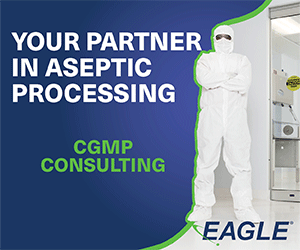Pharmaceuticals and hi-tech companies manufacturing in controlled environments have responded to the demands in the marketplace with large-scale investments. Businesses seem to be resilient to the uncertainty that remains over a no-deal Brexit
An analysis of the news stories on Cleanroomtechnology.com reveals that high-value budgets for expansion projects have been put into motion in 2018. For many in the drug-making business, last year's priority has been to boost manufacturing capacity. Chiefly, these investments have been made to cater for increasing demand concerning highly potent active pharmaceutical ingredients (HPAPIs). The reason is simple: a significant proportion of new drugs under development require HPAPIs.
The trend has led this segment of the industry to boom. And containment solution providers are reaping the benefits of an uptake in the market.
Equally, the market for cell and gene therapy is growing, leading to an increasing need for cleanroom technology, testing and monitoring services.
Another growing trend that started to be seen in the market last year, which is likely to require cleanroom technology, was antibody-drug conjugates (ADCs): a small-molecule, a cytotoxic payload, and an antibody connected with a linker. ADCs are designed to deliver the highly potent payload to targeted cells, limiting the risk of hurting the healthy ones.
Responding to these trends, pharma giants have been implementing expansion plans. Lonza, the Swiss contract development and manufacturing organisation (CDMO), is one of the multinational biotech companies investing heavily in building and upgrading production infrastructure to meet the increasing demand for HPAPIs. The company has constructions underway in the US, Singapore and Switzerland.
More about expansion plans in the pharmaceutical industry in our construction round-up.
Focus on containment
Manufacturers with a portfolio of containment equipment for labs and cleanrooms have been reaping the benefit of the growth in the (bio)pharmaceutical market. The HPAPIs required by drug- makers have been primarily for the treatment of cancer (cytotoxics and cytostatics), but the latest hormone, narcotic and retinoid-based drugs also contain highly potent active ingredients.
Companies providing these services have also reported a productive year. Developments in the product and services sectors are reviewed in our business and innovation round-up respectively.
The good health of the industry could be portrayed with news from Bioquell, the British company that specialises in isolator technology and biodecontamination. The Andover-based manufacturer reported a 90% increase in sales of its Qube isolator system compared to the same period last year. The news of a prosperous business echoed in December as Ecolab, the US-based hygiene giant, made an offer to acquire the company in a deal worth £140 million.
Hi-tech innovation
Manufacturers of satellites and computer chips have also been revamping infrastructure to cope with demand. The highlights of these markets are new foundries under construction in North America, Europe and Asia.
On the computing front, the market trend is towards small and faster processing of large volumes of data with better battery life. Technology is also leaning on wearable devices, adding pressure to contamination control.
Infrastructure expansion and product innovation have set the tone in 2018. Beyond the headlines, however, lays the uncertainty over what a no-deal Brexit could mean for manufacturers alongside the challenges from new regulation.
N.B. This article is featured in the January 2019 issue of Cleanroom Technology. The digital edition is available now.




